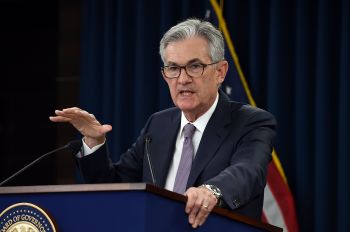Explainer: What is the repo market?
Steve Chiotakis: I think it’s safe to say stock markets are waking up from the slumber of the past few weeks, when they seemed less than bothered by the debt-ceiling drama going on in Washington. The Dow is down more than 400 points just in the last week. But also, traders now — behind the scenes traders — are preparing for a possible doomsday. And we’re seeing the effects today in something called the repo market.
Marketplace’s New York bureau chief Heidi Moore is with us to explain what’s going on. She’s live with us by the way from the studios of station WNYC. Hi, Heidi.
Heidi Moore: Hi, good morning.
Chiotakis: So what is the debt ceiling debate doing to the repo market?
Moore: Well, the first thing I need to say is that repos are not about repossessions. So, your car is safe. Repo in this case stands for repurchase agreements. It’s this weird dark corner of the market that even a lot of professionals don’t know about. The debt debate is causing a lot of banks not to trust each other as much right now. And because they don’t trust each other, they’re demanding higher interest rates from each other. We’re seeing that in the repurchase market. So, let’s take a step back, let me tell you how this thing works.
Chiotakis: Alright.
Moore: When banks and hedge funds close for the day, they don’t always have all the money they need on hand to settle their loans. So they use these repurchase agreements to fund each other overnight. It’s like a little bond. And when they make their books right at the end of the night, they say to each other buy this little bond for me. Big banks and hedge funds use these repurchase agreements to pay each other back with interest. And they pay each other with interest at the end of every night. But, it’s like a home loan when you need collateral. Banks need collateral, too. And most of the time they use treasury bonds. But, when the debt debate is making us question how risky even treasury bonds are, they’re skittish asking each other for more interest.
Chiotakis: So this is all banks — and banks between banks. What does this mean for you and me?
Moore: Look, it’s all related to us. If the U.S. can’t pay its bills, the country will have to pay higher interest rates, and so will everyone else. People who have mortgages — people who have car loans. And of course, banks, too.
Chiotakis: Alright, Marketplace’s Heidi Moore reportng for us. Thank you, Heidi.
Moore: Thank you, Steve.
There’s a lot happening in the world. Through it all, Marketplace is here for you.
You rely on Marketplace to break down the world’s events and tell you how it affects you in a fact-based, approachable way. We rely on your financial support to keep making that possible.
Your donation today powers the independent journalism that you rely on. For just $5/month, you can help sustain Marketplace so we can keep reporting on the things that matter to you.

















